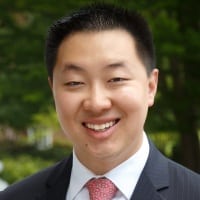
- This event has passed.
Walmart Takes on Amazon, Case Study
Tuesday, May 3, 2022/ /3:00 PM-5:00 PM

While Walmart dominated retailing for decades, Amazon and online retailing may pose a significant threat to Walmart. Even with more than a 40% share of the e-commerce market, Amazon continues to grow rapidly, with a market capitalization more than 3x of Walmart. With its acquisition of Whole Foods, Amazon now owns over 450 physical stores. We will examine the battle between these two behemoths and ask what strategy Walmart should pursue going forward.
ASSIGNMENT QUESTIONS
1. Is Walmart or Amazon currently in the stronger position? In ten years? Why?
2. Which of the two alternatives is the low cost way for a retailer to get the following items into the home: traditional brick-and-mortar retailing (through a distribution center to a store where a customer picks it from the shelf and takes it home) vs. online retailing (from a fulfillment center via a logistics company directly to the customer home)?
- A low-selling book
- $100 of assorted fresh groceries
- 70-inch flat screen TV for $700
- Four of the same blouse in different sizes
3. Who has the advantage in building out omnichannel?
-
-
- Easier for Walmart to build an eCommerce platform
- Easier for Amazon to build brick-and-mortar retailing
-
4. What should Walmart prioritize going forward as it builds out to a vision of omnichannel retailing?
-
-
-
- Defend lead in brick-and-mortar
- Go for victory on web-to-store
- Must fight head-to-head for web-to-home
-
-
ABOUT THE SPEAKER

Andy Wu is an Assistant Professor of Business Administration in the Strategy Unit at Harvard Business School, where he teaches in the MBA and Executive Education programs. He conducts research on strategies for how technology entrepreneurs internally organize and externally mobilize resources to achieve scale for competitive advantage. He received the HBS Wyss Award, HBS Williams Award, Poets & Quants 40 Under 40, and Penn Prize in recognition of commitment and excellence in teaching and mentoring. Professor Wu is a founder, director, investor, or advisor of several technology ventures. He holds several patents across rapid prototyping, medical imaging, robotics, and e-commerce. He received a PhD and MS in Applied Economics from the Wharton School of the University of Pennsylvania, where he is a senior fellow at the school’s Mack Institute for Innovation Management. While at Wharton, he received a Kauffman Dissertation Fellowship. He earned his SB in economics and mathematics at the Massachusetts Institute of Technology, where he was a Burchard Scholar.
